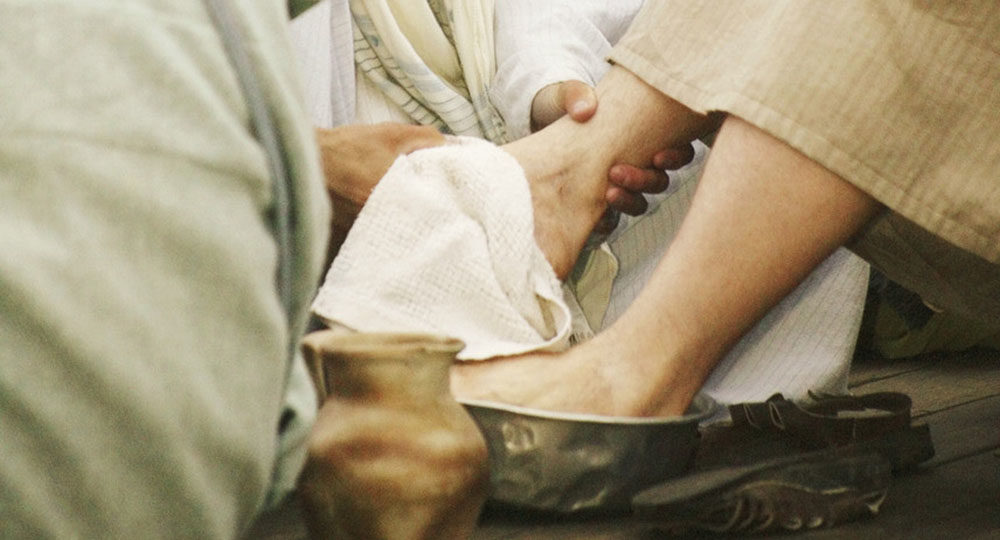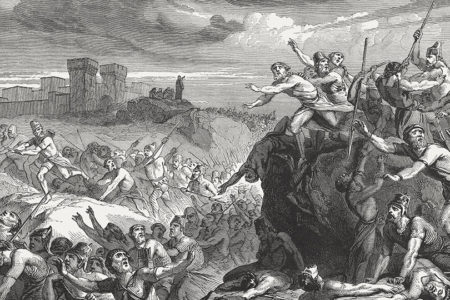Groundless, Yet Deadly
Pride is a matter of the heart. In both Hebrew and Greek, the languages of the Old and New Testaments respectively, the words pride and proud denote an arrogance, a puffing up, that causes people to exalt themselves above those around them. This affliction leads to a judgmental spirit and presumptuous actions.
Unfortunately, almost everyone wrestles with pride, to one degree or another. Thankfully, the Lord has equipped His people with His inspired Word to battle this great sin moment by moment through the power of the Holy Spirit.
More than 100 verses in the Bible deal with pride and help believers renew their minds and strengthen their hearts so they do not fall into the condemnation of the Devil.
Often, pride can deceive us. Sometimes we need a godly, courageous friend to bring it to our attention. The famous D. L. Moody preached of pride when he quipped, “I have had more trouble with myself than with any other man.”
In a message delivered in 1856 at New Park Street Chapel in England, Charles Haddon Spurgeon declared, “Pride is a groundless thing….Whatever thou art, thou hast nothing to make thee proud. The more thou hast, the more thou art in debt to God; and thou shouldst not be proud of that which renders thee a debtor.”1
Spurgeon continued,
Art thou desirous of being great and mighty in thine own esteem? Hear me then, sinner, destruction is coming upon thee. As truly as ever thou exaltest thyself, thou shalt be abased; thy destruction, in the fullest and blackest sense of the word, is hurrying on to overwhelm thee. And oh! Christian, is thine heart haughty this morning? Art thou come here glorying in thy graces? Art thou proud of thyself, that thou hast had such high frames and such sweet experiences? Mark thee, brother, there is a destruction coming to thee also. Some of thy proud things will be pulled up by the roots, some of thy graces will be shattered, and thy good works, perhaps, will become loathsome to thee, and thou wilt abhor thyself in dust and ashes. As truly as ever thou exaltest thyself, there will be a destruction come to thee, O saint—the destruction of thy joys and of thy comforts, though there can be no destruction of thy soul.2
Pride is a cruel taskmaster; it commands the heart, crowding out all virtue. It must be identified and purged if one has a desire to be used of God.
The antidote to pride is humility: “God resists the proud, but gives grace to the humble” (Jas. 4:6; 1 Pet. 5:5).
“Humility,” Spurgeon said, “is to think of yourself, if you can, as God thinks of you”:
It is to feel that if we have talents, God has given them to us, and let it be seen that, like freight in a vessel, they tend to sink us low. The more we have, the lower we ought to lie. Humility is not to say, “I have not this gift,” but it is to say, “I have the gift, and I must use it for my Master’s glory. I must never seek any honor for myself, for what have I that I have not received?” But, beloved, humility is to feel ourselves lost, ruined, and undone.3
We will never completely vanquish pride in our lives until the Lord separates us from the presence of sin when we are finally with Him. Until then, embracing and abiding in “Him who is able to keep you from stumbling, and to present you faultless before the presence of His glory with exceeding joy” (Jude 24) is paramount in the moment-by-moment battle with pride.
Endnotes
- Charles Haddon Spurgeon, “Pride and Humility” (sermon delivered August 17, 1856), The New Park Street Pulpit, The Spurgeon Archive <spurgeon.org/sermons/0097.htm>.
- Ibid.
- Ibid.








